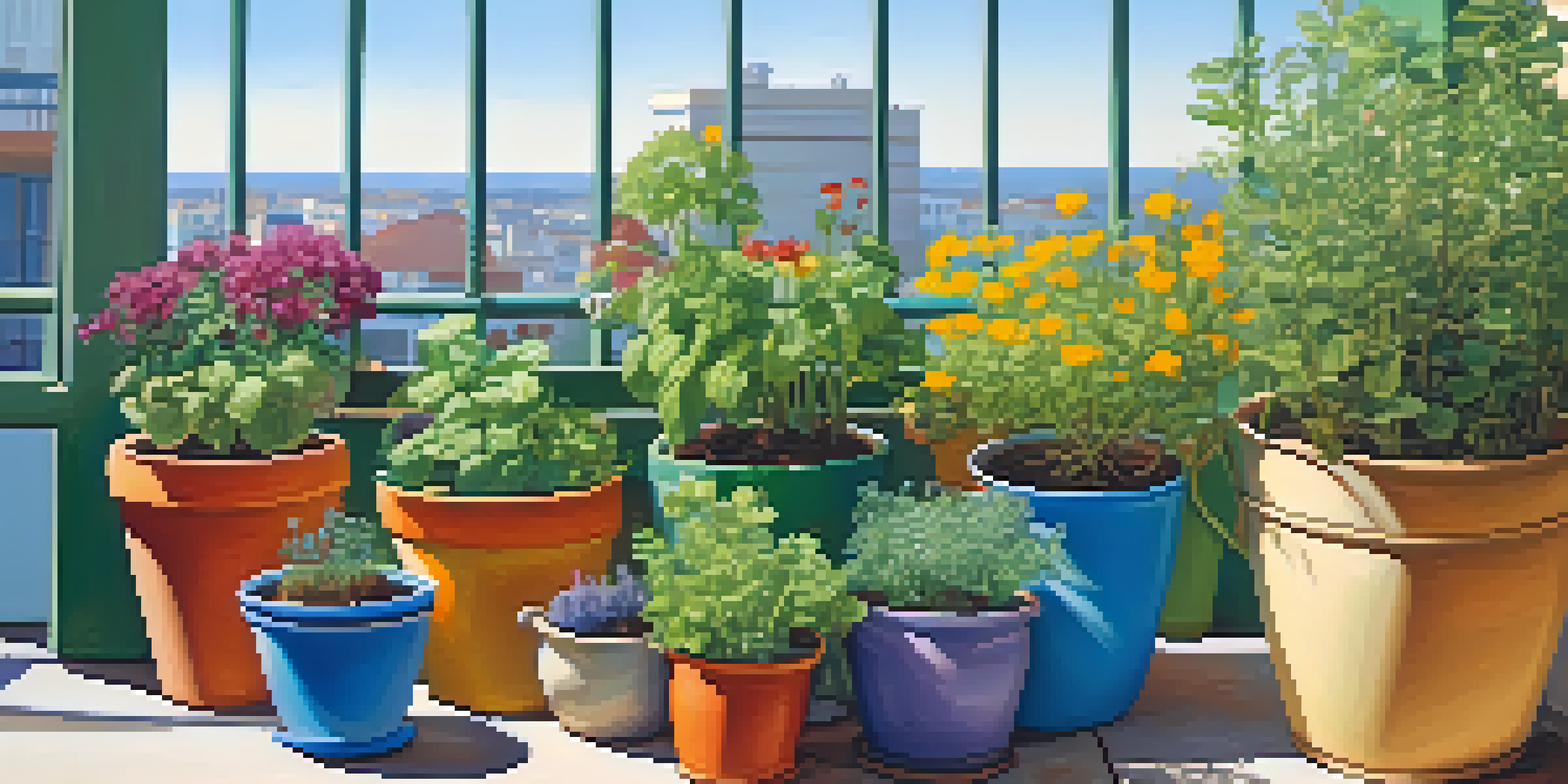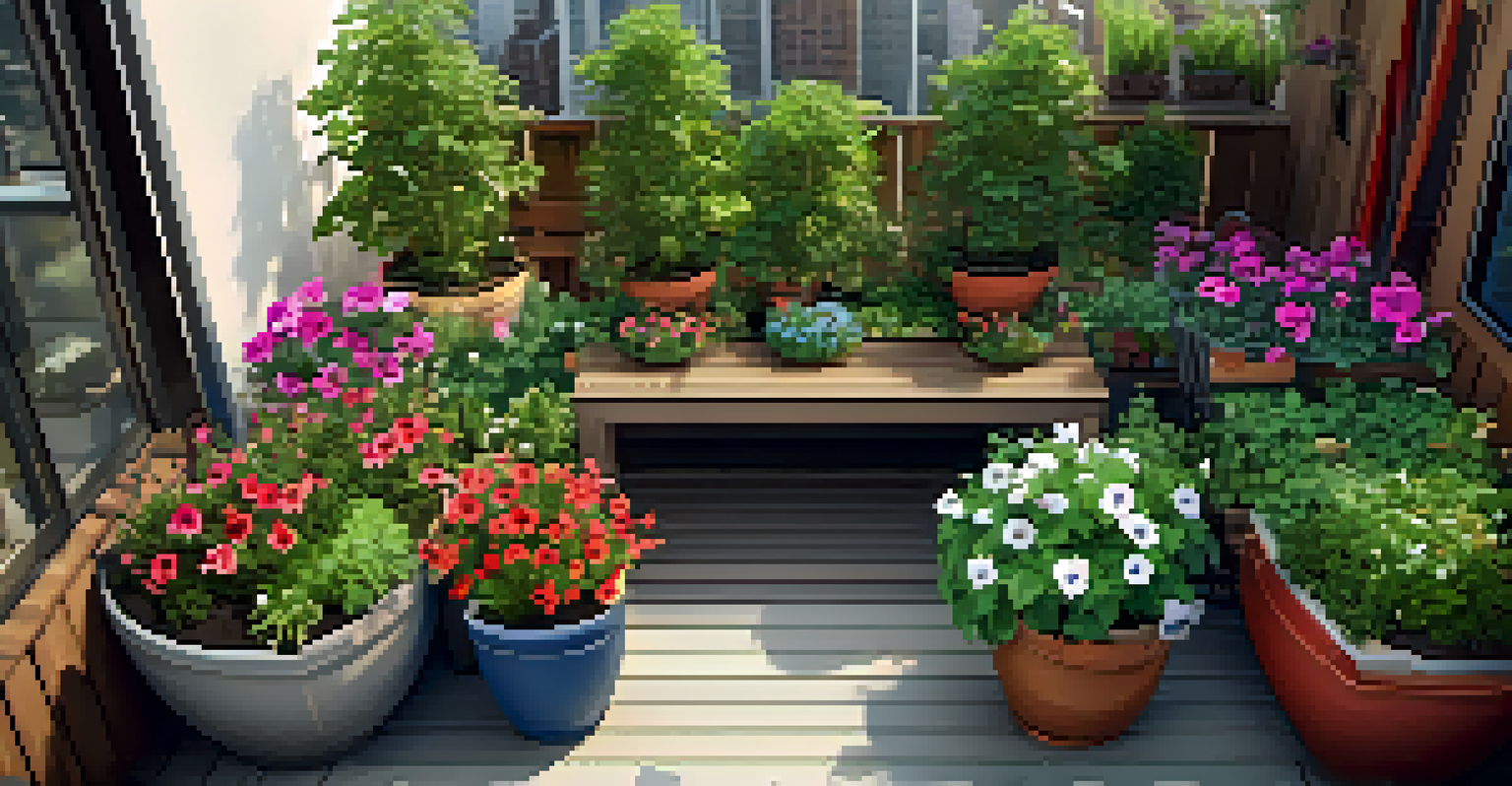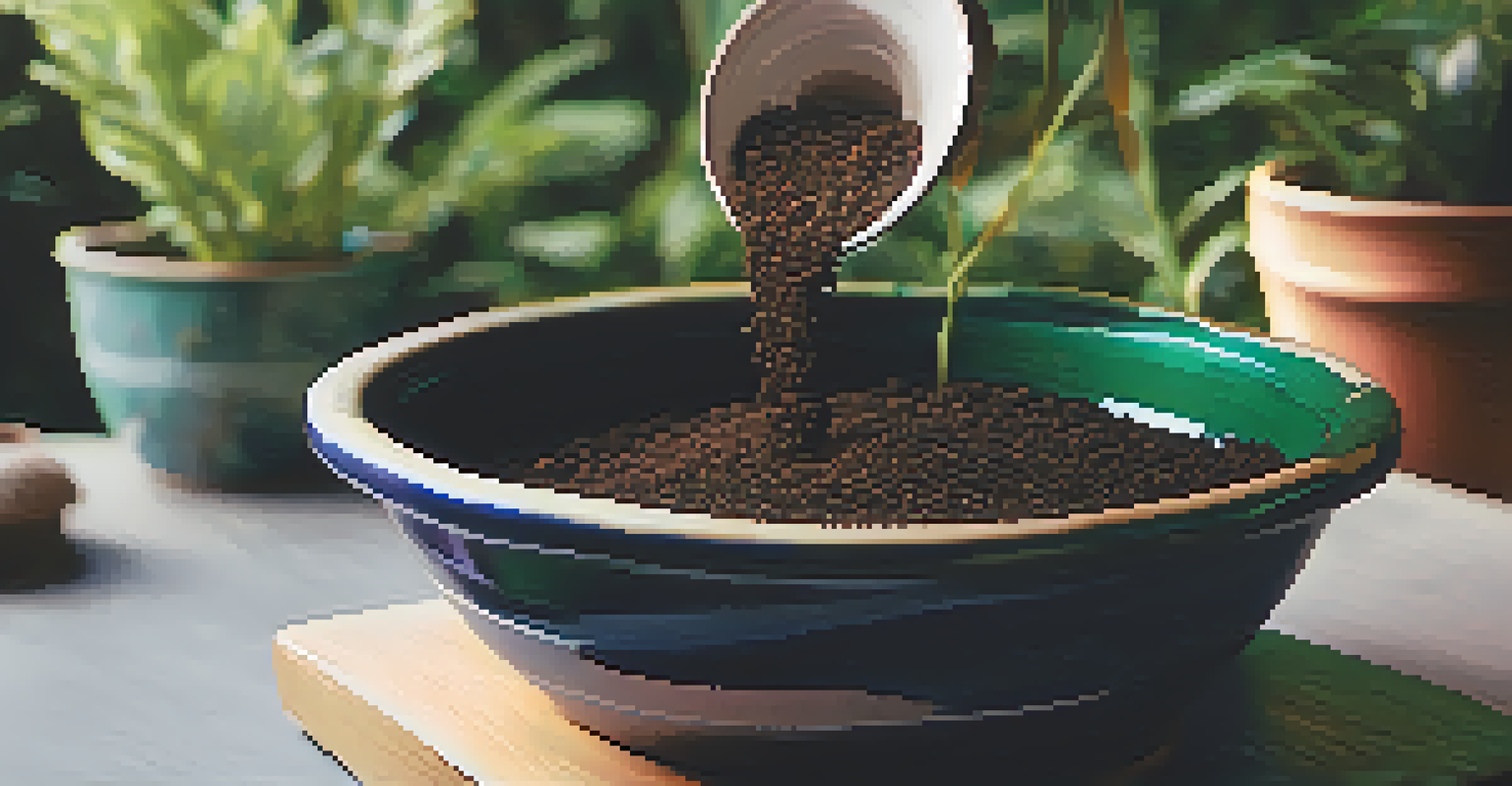Container Gardening: Seasonal Planting Tips for Urban Spaces

Understanding Container Gardening Basics for Urban Dwellers
Container gardening is a fantastic way to cultivate plants in limited spaces, perfect for urban living. It allows you to grow flowers, vegetables, and herbs without needing a traditional garden plot. By using pots, planters, or even repurposed items, you can create a green oasis right on your balcony or patio.
Gardening is a way of showing that you believe in tomorrow.
One of the key benefits of container gardening is the flexibility it offers. You can easily rearrange your plants based on sunlight exposure or aesthetic preference. This adaptability not only enhances your space but also gives you a chance to experiment with different plant combinations.
Moreover, container gardening can be highly rewarding, as it allows you to enjoy fresh produce or vibrant flowers even in a bustling city environment. With a bit of creativity and planning, you can transform even the smallest urban space into a thriving garden.
Choosing the Right Containers for Your Urban Garden
Selecting the right container is crucial for your plants' health and growth. Containers come in various materials, such as plastic, ceramic, and wood, each offering its own benefits. For instance, plastic is lightweight and easy to move, while ceramic provides excellent insulation for roots.

When choosing a container, consider the size and drainage. Larger pots will hold more soil, allowing plants to grow bigger, while adequate drainage holes are essential to prevent waterlogging. You can also add a layer of gravel at the bottom of your pot to enhance drainage.
Maximize Space with Container Gardening
Container gardening allows urban dwellers to grow plants in limited spaces, transforming balconies and patios into green oases.
Additionally, think about the style of your containers. Aesthetic appeal matters, especially in urban settings where space is often limited. Mixing different shapes and colors can create an eye-catching display that enhances your outdoor area.
Timing Your Planting: Seasonal Considerations
Timing is everything in gardening, and container plants are no exception. Each plant has its preferred growing season, so it's vital to research when to plant your favorites. For instance, spring is often the best time to start cool-season crops like lettuce, while summer is ideal for heat-loving plants like tomatoes.
To plant a garden is to believe in tomorrow.
In urban areas, microclimates can also affect planting times. For example, a balcony that receives full sun may allow for earlier planting compared to a shaded courtyard. Keeping an eye on local weather patterns can help you adjust your planting schedule accordingly.
Additionally, consider the length of your growing season. Some plants can thrive in cooler conditions, while others may need warmer weather to flourish. By aligning your planting with the right season, you can maximize your success in container gardening.
Selecting the Best Plants for Container Gardening
When it comes to container gardening, not all plants are created equal. Opt for varieties that are well-suited for pots, such as herbs, dwarf varieties of vegetables, and flowering plants. Herbs like basil and mint thrive in containers and can enhance your culinary adventures.
Additionally, consider the growth habits of your plants. Trailing plants like petunias can create beautiful cascades from hanging baskets, while upright varieties such as peppers or tomatoes make excellent centerpieces. Mixing different growth habits can create a visually appealing arrangement.
Choose Containers Wisely
Selecting the right containers, considering size, material, and drainage, is crucial for the health and growth of your plants.
It's also wise to choose plants that share similar water and sunlight needs. Grouping plants with compatible requirements ensures that they thrive without competing for resources, ultimately creating a healthier and more vibrant container garden.
Soil Choices: The Foundation of Healthy Plants
The right soil can make all the difference in container gardening. A high-quality potting mix is essential, as it provides the necessary nutrients and drainage for healthy plant growth. Avoid using garden soil, which can compact and hinder drainage in pots.
It's also beneficial to look for soil blends that contain materials like peat moss or coconut coir, which retain moisture without becoming waterlogged. These components help create a balanced environment for your plants, making it easier for them to absorb nutrients.
Don't forget to refresh your soil every season. Over time, nutrients can deplete, so adding fresh potting mix or compost at the start of each season will help keep your plants thriving and productive.
Watering Wisely: Keeping Your Container Plants Hydrated
Watering is a crucial aspect of successful container gardening. Since plants in pots dry out faster than those in the ground, regular monitoring is necessary. A good rule of thumb is to check the soil moisture daily, especially in hot weather.
When you water, aim for deep and thorough soaking to encourage healthy root growth. Make sure water flows out of the drainage holes at the bottom of the container, ensuring that the roots receive adequate hydration without sitting in excess water.
Regular Maintenance is Key
Seasonal maintenance, including watering, fertilization, and pest control, is essential for keeping your container garden thriving.
Additionally, consider the time of day for watering. Early morning is often the best time, as it allows plants to absorb moisture before the heat of the day sets in. Consistent watering habits can lead to flourishing container gardens, even in urban settings.
Seasonal Maintenance: Caring for Your Container Garden
Caring for your container garden requires regular attention, but it can be a rewarding experience. Seasonal maintenance tasks, such as deadheading flowers and pruning herbs, help promote growth and keep your plants looking their best. This simple act can encourage more blooms and prevent plants from becoming leggy.
Fertilization is another key aspect of maintaining healthy plants. Most potting mixes will provide nutrients for a limited time, so applying a balanced, slow-release fertilizer every few months can boost growth. Remember to follow the manufacturer's instructions for proper application rates.

Finally, be on the lookout for pests and diseases. Regularly inspecting your plants allows you to catch any issues early on. Natural remedies, such as neem oil or insecticidal soap, can help manage pests without harming the environment, ensuring your container garden remains thriving.